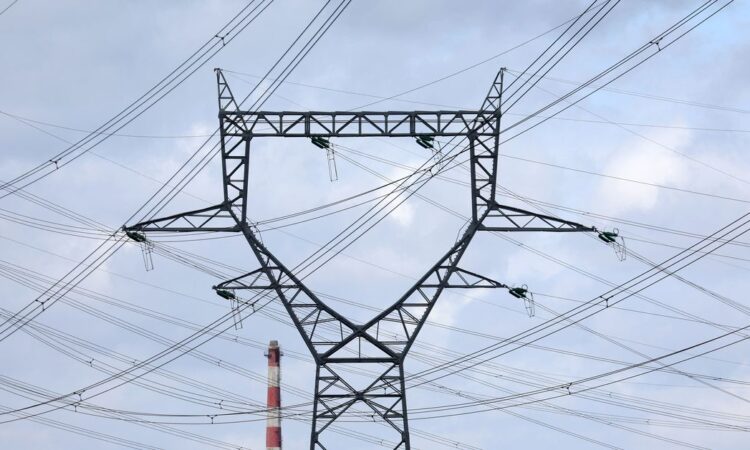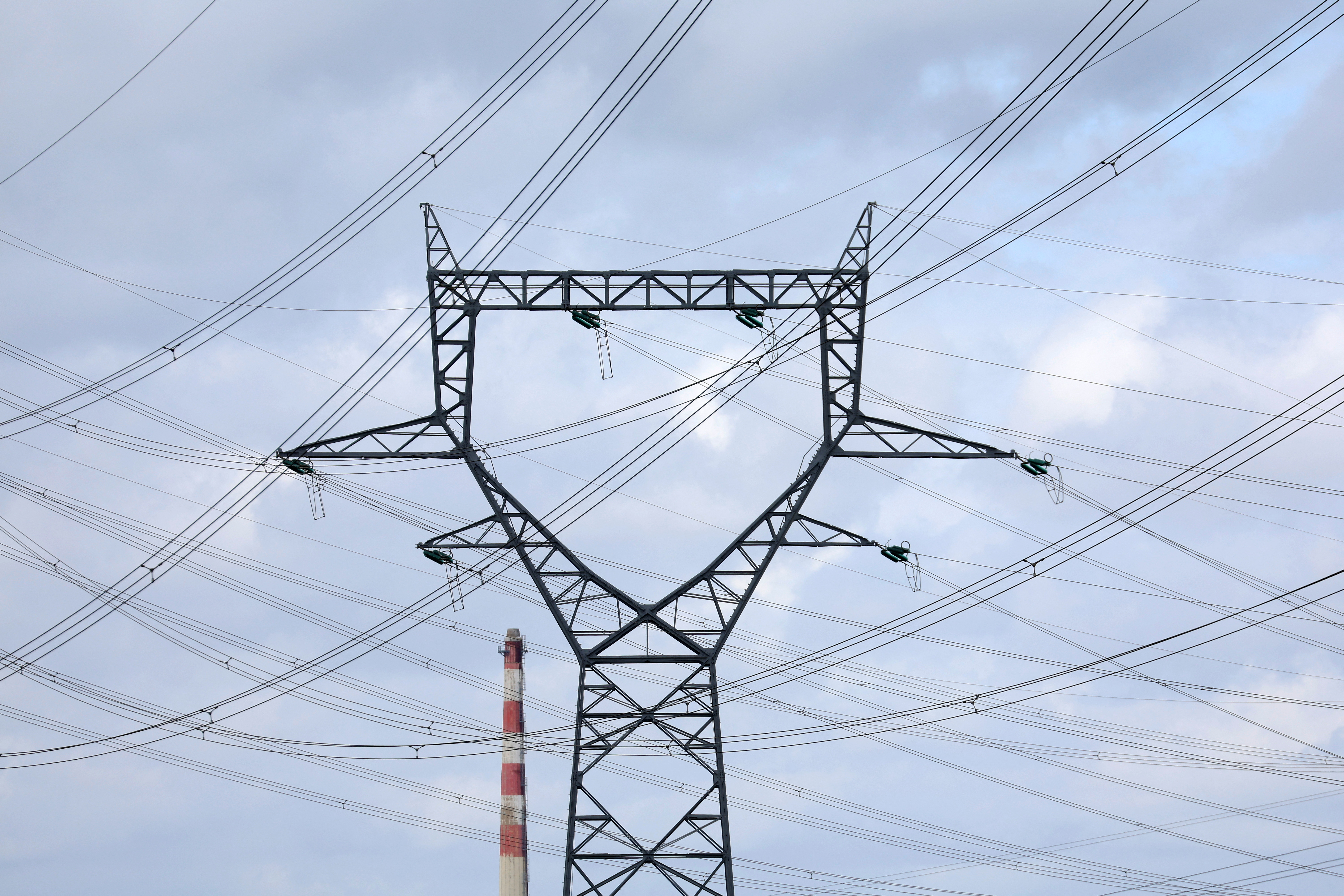

Electricity pylons of high-voltage electrical power lines are seen in Bouchain, France, August 1, 2023. REUTERS/Pascal Rossignol/File Photo Acquire Licensing Rights
LUXEMBOURG, Oct 17 (Reuters) – European Union countries’ energy ministers agreed to reform power market subsidies, Spain’s energy minister said on Tuesday, defusing a stand-off between France and Germany over the future competitiveness of industrial sectors, which had held up a deal.
The European Commission proposed changes to the EU’s electricity market in March after cuts to Russian gas supplies sent EU power prices to record levels last year. The new rules seek to shift to longer term, fixed-price contracts to protect consumers from volatile fossil fuel markets.
Countries struck a deal on Tuesday on a section of the law that spells out how state aid can be used to support power projects that had triggered the dispute because of concerns, especially from Germany, it could distort competition.
“It should help protect consumers against a future emergency and future crises. The most significant factor is that there was almost unanimity,” Spain’s Energy Minister Teresa Ribera told reporters.
A compromise proposal by Spain, which holds the EU’s rotating presidency and chaired Tuesday’s meeting, said all future state aid for new renewable and nuclear power plants must take the form of “contracts for difference” subsidies based on a set price for energy.
However, countries added a preamble to the law that said governments can still offer these contracts to existing power plants when significant investments are made in the plant to expand its capacity or extend its life.
Berlin feared that France’s nuclear fleet would allow the country to offer fixed-price power contracts to its existing nuclear energy fleet – then spend revenues generated by these government-backed contracts on subsidising industries.
Germany, Europe’s biggest economy, is on the edge of a recession after losing access to the ample supply of cheap Russian gas it received before Moscow invaded Ukraine last year. Berlin expects the economy to shrink by 0.4% this year as its industrial output continues to contract.
The proposal added conditions to soothe Germany’s and other countries’ concerns.
It said the subsidies must be designed so that the use of revenues raised by the schemes – for example, by redistributing cash to support local industries – does not distort competition or trade in the EU.
“The main issue was the contract-for-difference. This is a very technical point. There were genuine concerns for level playing field for industry,” EU Energy Commissioner Kadri Simson told reporters.
“The commission will of course ensure that such instruments are properly designed and do not give rise to distortions of competition and keep the level playing field in the internal market.”
Reporting by Julia Payne and Kate Abnett; additional reporting by Markus Wacket; editing by Christina Fincher, Deborah Kyvrikosaios and Barbara Lewis
Our Standards: The Thomson Reuters Trust Principles.






